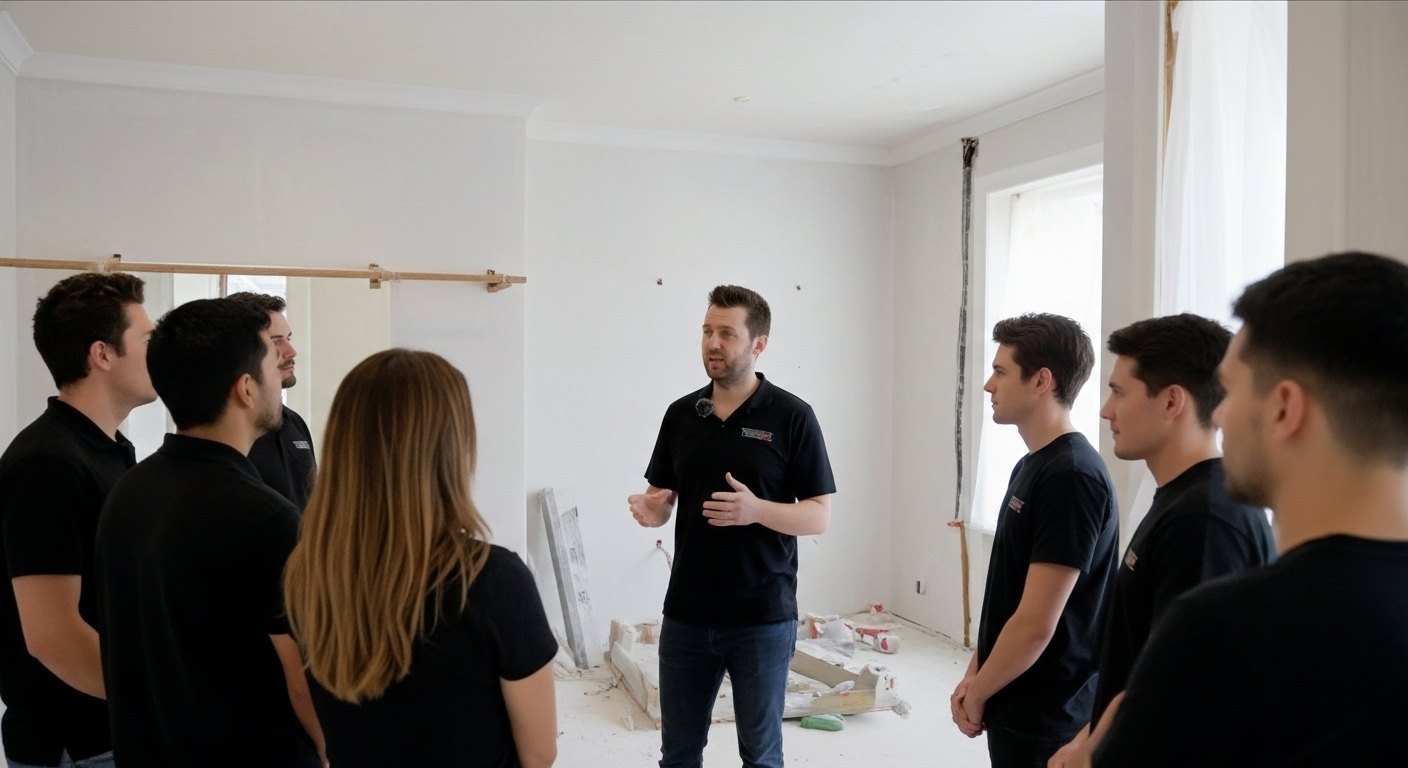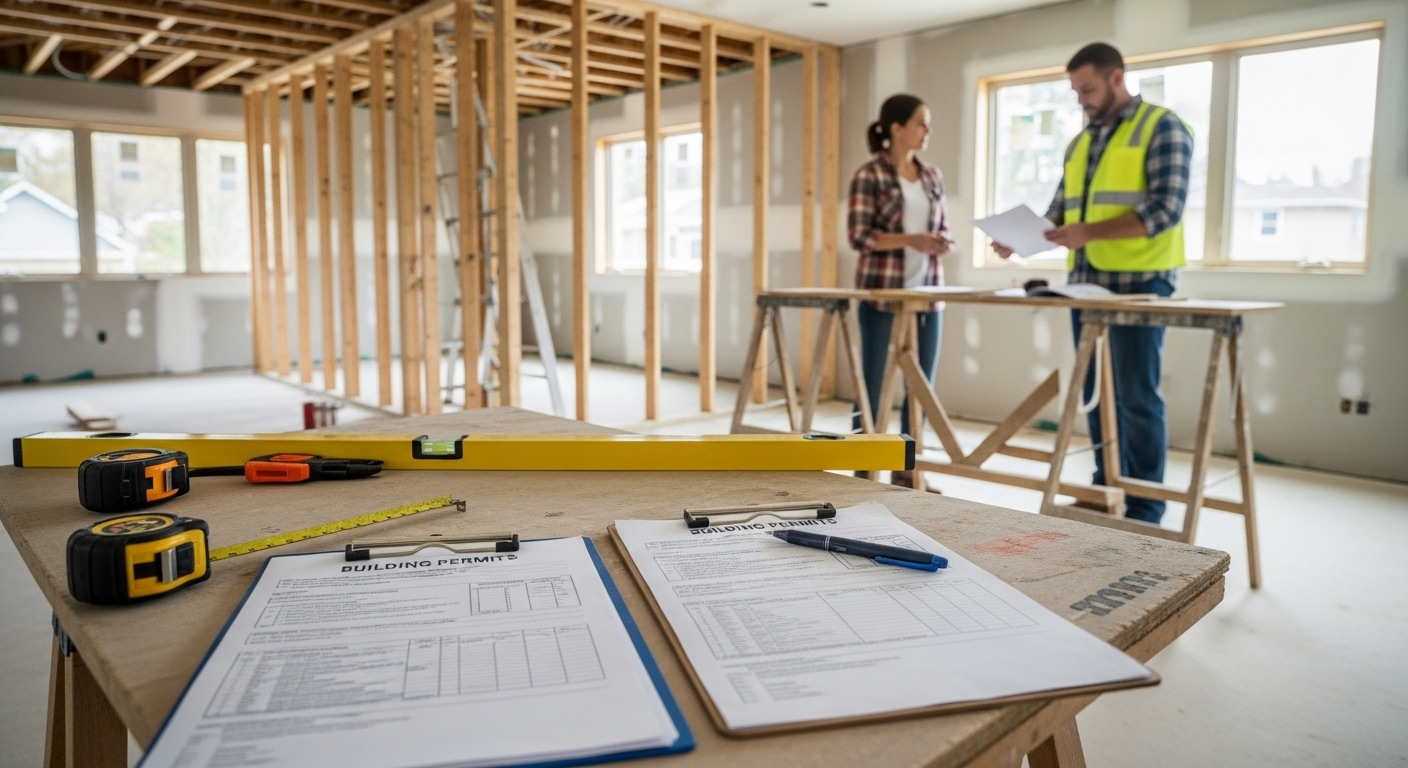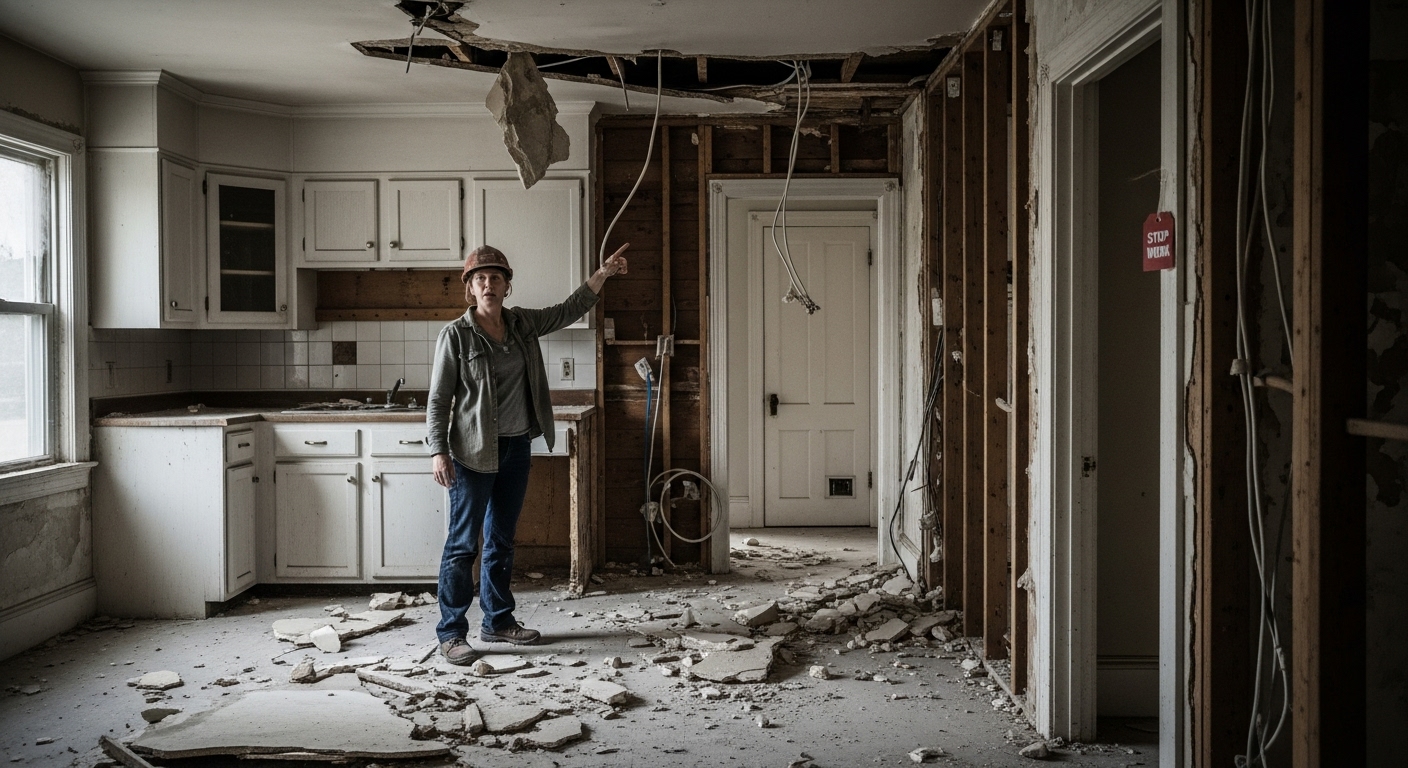What Permits do you need for a Cottage Renovation?
Planning a cottage renovation is an exciting process. Whether you’re envisioning a cozy new living room, expanding your kitchen, or adding an outdoor deck, it’s easy to get caught up in the fun of designing your perfect retreat.
But before you dive into your dream renovation, there’s one important step you can’t skip: getting the proper permits. It might not be the most glamorous part of the process, but securing the appropriate approvals is essential to ensuring everything goes smoothly and legally.
Many homeowners overlook the permitting process, but it’s crucial to avoid fines, project delays, or being required to undo work that doesn’t meet local regulations. If you’re planning a renovation for your cottage in Muskoka or anywhere else in Ontario, knowing what permits you need can save you a lot of headaches down the line.
Let’s break down the key permits required for cottage renovations so you can confidently start your project.
1. Building Permit
A building permit is required for most cottage renovations, especially if you’re making structural changes, building an addition, or doing anything significant with plumbing or electrical systems.
Why You Need It: A building permit ensures that your project meets local building codes and safety standards, which is important for your safety and the value of your property. It’s also required by law in most cases.
Cost: Fees can vary depending on your municipality, but if we’re focusing on Muskoka, you’re looking at anywhere from $100 for small changes to around $1,500 for bigger projects, like adding a new room or building a deck.
2. Septic Permit
If your cottage uses a septic system (which is common in rural areas like Muskoka), you’ll need a septic permit if your renovation involves adding more bathrooms or increasing your water usage.
Why You Need It: Septic systems can only handle so much water, so adding new bathrooms or significantly increasing water usage could overwhelm the system. The permit ensures that your septic system is up to the job and won’t cause environmental issues.
Cost: Septic permit fees in Muskoka generally range from $800 to $1,500, depending on whether you’re upgrading an existing system or installing a new one.
3. Demolition Permit
If your renovation involves knocking down part of your cottage—like removing walls or tearing down a garage—you’ll need a demolition permit.
Why You Need It: Demolition can be risky if not done properly, and this permit ensures that the process is safe and doesn’t negatively affect neighbouring properties or the environment.
Cost: The cost of a demolition permit usually falls between $100 and $500, depending on the scope of the demolition.
4. Electrical Permit
For any renovation involving electrical work—whether you’re rewiring a room, adding more outlets, or installing new lighting—you’ll need an electrical permit from the Electrical Safety Authority (ESA).
Why You Need It: Electrical work needs to meet safety standards to prevent fire hazards and ensure everything is properly installed. An electrical permit guarantees that your project is inspected and up to code.
Cost: For most residential projects, electrical permits cost between $79 and $175. Larger projects will naturally cost a bit more.
5. Plumbing Permit
If your renovation involves moving or adding plumbing (think new bathrooms, kitchens, or laundry rooms), a plumbing permit is a must.
Why You Need It: Properly installed plumbing is crucial to avoid leaks, water damage, or issues with water pressure. This permit ensures everything is installed correctly and follows local plumbing codes.
Cost: Plumbing permit costs typically range from $100 to $500, depending on the work involved.
6. Shoreline Work Permit
For those with a waterfront cottage, any work involving the shoreline—like adding a dock, boathouse, or retaining wall—requires a shoreline work permit.
Why You Need It: Shoreline work can impact water flow, erosion, and the local ecosystem, so the permit ensures that your project is environmentally sound and won’t cause harm to the lake or river.
Cost: This permit usually costs between $300 and $1,000, depending on the scope of the project and its proximity to the water.
7. Zoning Permit
If your renovation involves expanding the footprint of your cottage or altering the property in any major way, a zoning permit might be required. This ensures that your project complies with local zoning bylaws, which govern things like property lines, height restrictions, and land use.
Why You Need It: Zoning laws exist to prevent overcrowding and to maintain the character of a neighborhood or area. A zoning permit ensures your renovation fits within those rules.
Cost: Zoning permits can range from $200 to $600, depending on the specifics of your renovation.
Permits might not be the most exciting part of your cottage renovation, but they are essential to keeping your project on track and within the law. From building and septic permits to zoning and shoreline work approvals, each plays a crucial role in ensuring your renovation is safe, environmentally friendly, and legally compliant.
That’s where working with a professional contractor can make all the difference. At Generation Construction, we handle the permitting process for you, so you can focus on the fun parts of your renovation. We’re familiar with all the local regulations and can help you navigate the process smoothly, making sure your dream cottage renovation goes off without a hitch.
Ready to get started? Let us help you bring your vision to life—stress-free and with all the permits in place!



